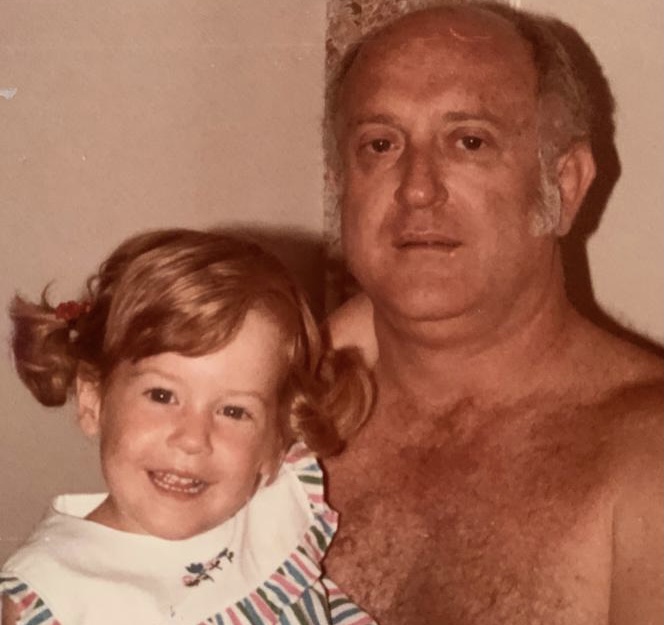It was Easter of 2016 and we’d had a family weekend together: culminating in an egg hunt and my toddler devouring her body weight in chocolate. My dad dropped us at the airport on Easter Sunday and we had said the normal teary but happy goodbyes as we trundled through the gates, lugging prams, suitcases and children in tow.
On Tuesday, my mum called to say that my dad was in a great deal of pain and struggling to get out of bed. Later that week, under duress, he was admitted to hospital; and after numerous tests, was diagnosed with cancer and given 3-6 months to live, with chemo, and way less without. The doctor asked what he’d like to do - it was posed as a choice but, faced with a death sentence, there didn’t seem many options available.
Dad was a solicitor, by trade, and had helped a few of his clients deal with their final affairs while battling cancer, so he knew how ravaging treatment could be. He’d always maintained that, if given the choice, he’d decline intervention as the cure seemed worse than the illness, however when faced with the choice, he opted for the treatment because any hope seemed better than no hope.
In hindsight, I wish he had stuck to his guns, refused treatment and instead opted for palliative care. I believe his last few weeks would have been gentler and more peaceful. I wish I’d known more about his cancer: about the trajectory and prognosis, and how the body responds at the various stages. I wish I’d known when to fight for life and when to accept death, as the line is almost invisible but it’s so painful when you’re stuck on the wrong side. As a family we’ve always been pretty stoic and we’re fighters. So we all fought hard, and maybe accepting death would have felt like defeat to us? Through this process, I’ve learnt that acceptance (at the right time) is not capitulation: it’s the boldest and most courageous response to death.
Despite the chemo, Dad died in the hospital exactly a month after his diagnosis. He so desperately wanted to go home one last time, but he wasn’t able to. In those last weeks we got to chat about his past, and he told many of his childhood stories. It seems silly looking back on it now but I remember clearly at the time that none of us (including Dad himself) wanted to admit he was actually dying. After his death, I wished we’d been more open and acknowledged, in real time, what was happening and shared how we felt. I wish we’d talked about the loss and the pain and I wish I could have allowed him the space to speak through his fears and questions. But I also realise that he probably wanted to protect us from it all - his emotional privacy was the last bit of autonomy he had, as he was gradually losing control of the other parts of himself.
My experience of cancer has left me wanting to connect with others in similar scenarios as they navigate the diagnosis, treatment, remission or terminal outcome. Although I realise that every scenario is unique, I now love to be able to share from my experiences so others can feel better equipped to deal with the uncertainties and sense of powerlessness that a cancer diagnosis brings: living their life to it’s fullest, right to the end.




